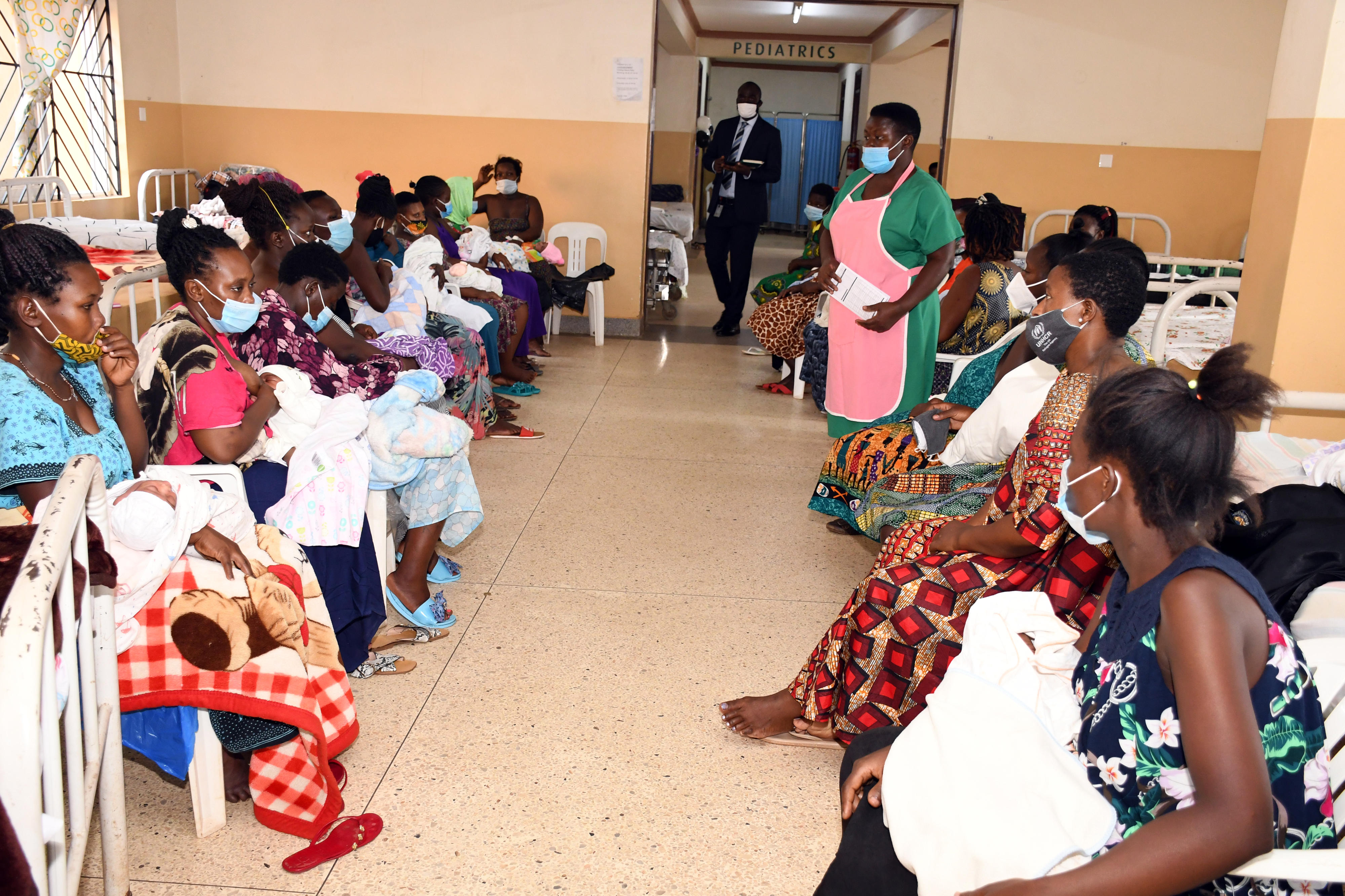What we must do with ‘greedy’ private hospitals

Mothers are taken through postnatal counselling at Kisenyi Health Centre IV in Kampala in April. Unlike public health facilities such as this one, many private health facilities are fond of detaining patients after failing to clear their medical bills. PHOTO/RACHEL MABALA
What you need to know:
The issue: Healthcare
Our view: Private health care providers can still return a profit when they deal with patients ethically and in civilised fashion. It is in their interest to follow this path because good customer care generally builds ‘brand loyalty’, laying the ground for return visits to your facility.
Private health care providers in Uganda have a good lesson to learn from the curious case of the ‘detained baby’ that is presently before a judge in a Kampala court. While the full facts will eventually emerge, it is instructive that the public is talking about the legitimacy, or lack thereof, in a hospital holding a patient at ransom.
Some of the worst examples of what we shall mildly refer to as medical terrorism were provided by the gross and pervasive misconduct of private hospitals during the Covid-19 crisis. Patients, and dead bodies were being impounded by private hospitals at the drop of a hat yet most of these facilities were charging extortionate rates
Before the pandemic there were similar stories of hospital-patient money disputes. Those cases, however, never received as much airplay, which is unfortunate given the depths to which private health services appear to be sinking.
It is shameful that some private medical workers and their employers were shameless in exploiting the desperation Covid brought. It got so bad, the President was forced to step in to settle the more outrageous cases. Health care is expensive, yes. But whether expensive should be synonymous with profiteering is another matter altogether.
Medical ethics and the Hippocratic Oath which doctors swear presuppose that medics must always seek to preserve human life in the most humane manner. Impounding corpses of the dead, or bodies of barely alive patients must be the height of inhumane treatment of persons. It is an outrage.
What this calls for is a clarification of the regulatory framework for private health care. It should be made very clear how patients or relatives of the dead can settle hospital bills with as little fuss as possible. We need the clarity because Uganda is a very poor country where more than 90 percent of the population is struggling. Except for the well-off, most people must fundraise amongst friends and relatives to meet the spiralling cost of private health care. We encourage hospitals to choose payment plans over strong-arm tactics. At the end of the day, holding people at ransom serves no useful purpose.
Private health care providers can still return a profit when they deal with patients ethically and in civilised fashion. It is in their interest to follow this path because good customer care generally builds ‘brand loyalty’, laying the ground for return visits to your facility.
On the other hand, this is another reason for greater investment in quality public health care. If more of our public hospitals were up to scratch, fewer Ugandans would have to put up with the rapacious tendencies we see emerging in private health care.
Our commitment to you
We pledge:
- To be accurate and fair in all we do.
- To be respectful to all in our pursuit of the truth.
- To refuse to accept any compensation beyond that provided by Monitor Publications Ltd. for what we do in our news gathering and decision-making.
Further, we ask that we be informed whenever you feel that we have fallen short in our attempt to keep these commitments.




